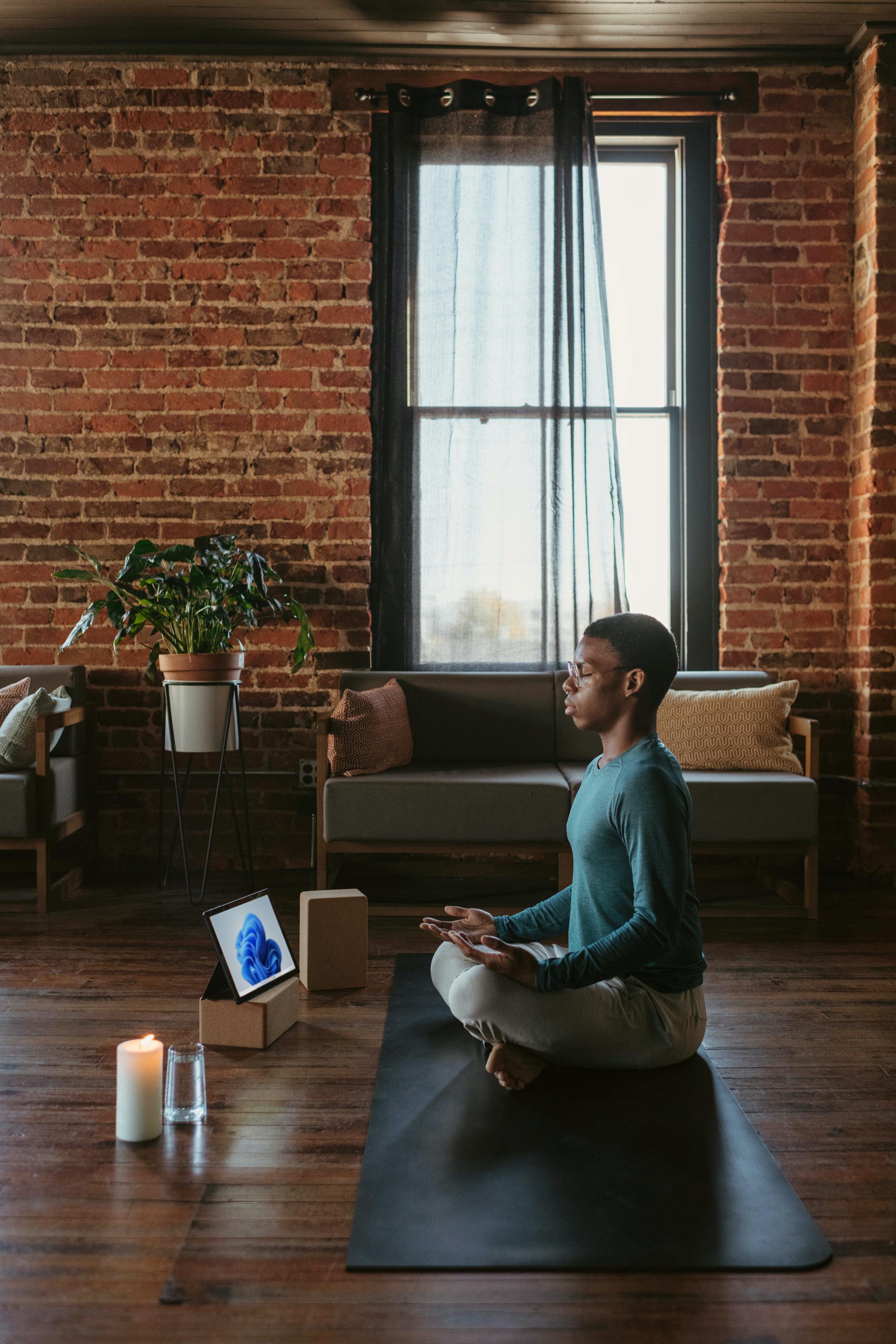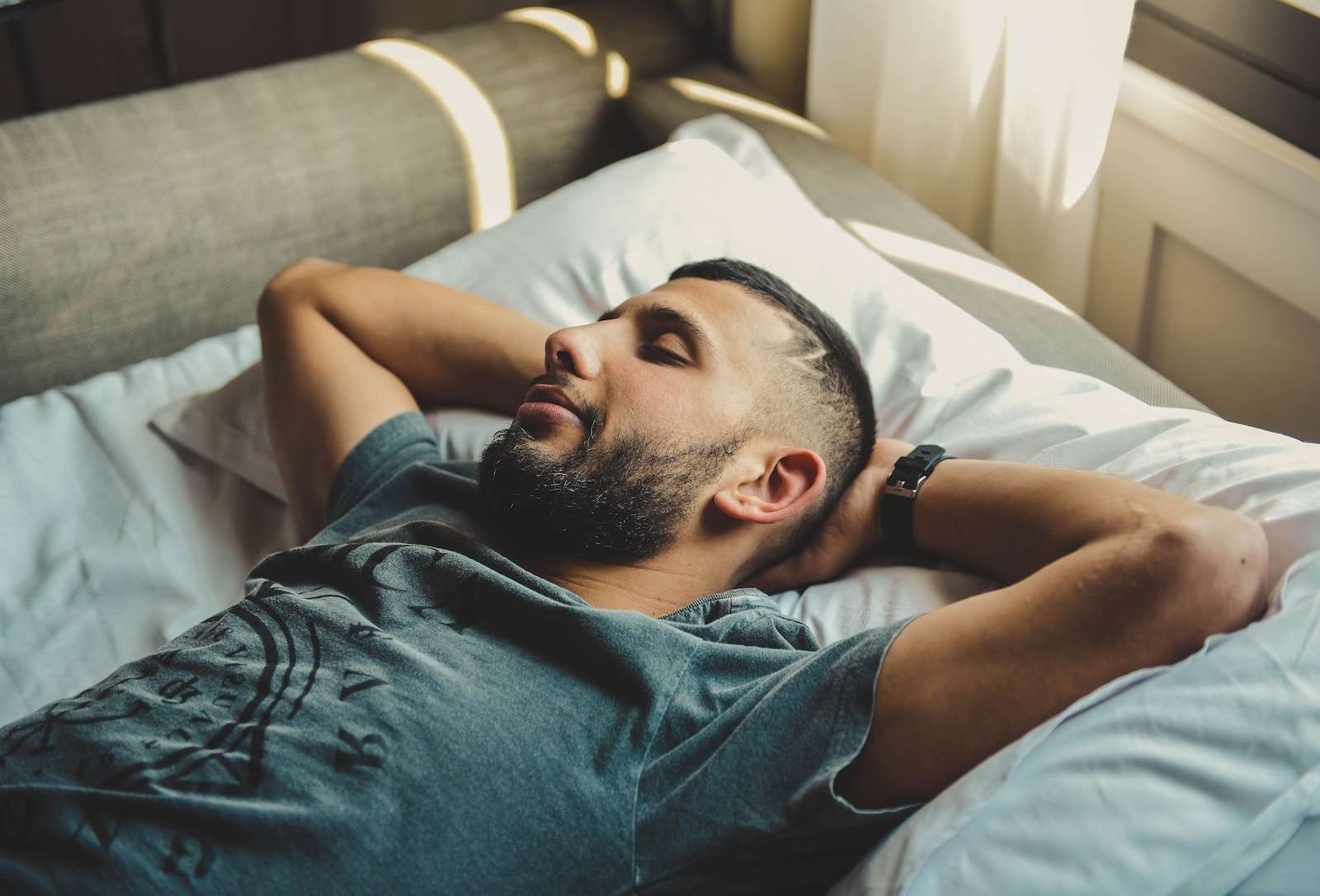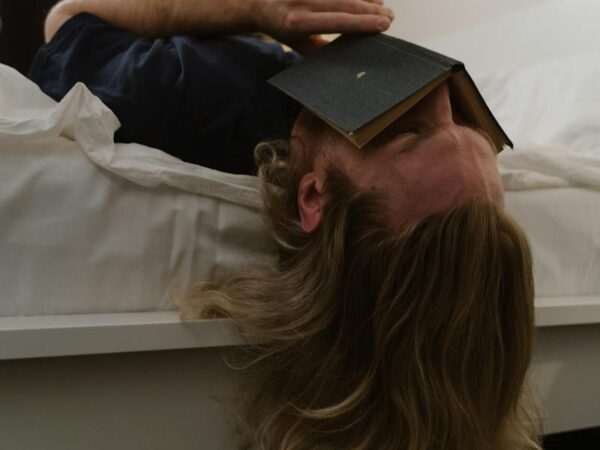Summary. Getting a good night’s sleep is essential for mental wellbeing. But, for some, it can be difficult to drift off when the time comes. In this article, we offer tips on how to train your brain for better sleep. By improving your sleeping habits and environment, developing a consistent bedtime routine, and using mindfulness and relaxation techniques, you can create the perfect environment for restful sleep. By following the tips outlined, your brain will be prepared for sleep and you’ll find it easier to drift off night after night.
Are you having troubles getting a good night’s sleep? Is your mind constantly racing and stopping you from sleeping soundly? If so, you’re not alone. Millions of people struggle with sleeping well at night, but fortunately there are ways to train your brain for better sleep. There are so many benefits to a full night’s rest – but you can’t reap them if you can’t fall asleep, or worse, can’t stay asleep. If you’ve been experiencing insomnia or other sleep issues, it’s time to consider training your brain for better sleep. So, what can you do to train your brain for better sleep?
Identifying the Causes of Difficulty Sleeping

Getting a good night’s sleep is essential for our physical and mental health, yet many people struggle to get a good night’s rest. Difficulty sleeping can be caused by a variety of issues, from underlying medical conditions to stress and anxiety. That’s why it’s important to understand the causes of difficulty sleeping in order to find solutions that can help you get the restful sleep you need and deserve. First, take a look at your sleep environment.
A bedroom should be free from potential distractions such as bright lights, loud noises, or electronics. Consider dimming the lights, using blackout curtains, and adding soundproofing to ensure that your living space is conducive to relaxation. Additionally, make sure you’re removing any potential distractions from your bedroom such as televisions, phones, and computers.
Eating too late at night, drinking alcohol, or drinking caffeine late in the day can all disrupt your body’s natural circadian rhythm and make it more difficult to fall asleep at night. Additionally, exercising too close to bedtime can leave your body feeling energized and make it difficult to wind down for sleep. Try to establish regular nighttime habits that can help you feel relaxed, such as reading a book or taking a warm bath.
Next, identify any underlying medical conditions. Certain medications or medical issues can disrupt your sleep cycle and make it harder to catch quality zzz’s. If you’ve been dealing with difficulty sleeping for an extended period of time, it’s recommended to speak with a doctor about possible medical conditions such as sleep apnea, restless leg syndrome, or chronic pain.
Worrying too much at night, battling perfectionism, and ruminating on negative thoughts can all wreak havoc on our mental state and make it difficult to find relief in sleep. Practicing mindfulness or light yoga before bedtime can help to reduce stress and promote a restful sleep.
By understanding the causes of difficulty sleeping, you can begin to create solutions that will help you get the restful sleep you need and deserve. Take a look at your sleep environment, consider your lifestyle choices, identify any underlying medical conditions, and address underlying stress or anxiety. By making the conscious effort to take control of your sleep, you can help create the foundation needed for quality rest.
Minimizing Digital Distractions for Better Sleep

Getting a good night’s rest is essential for both physical and mental health. Unfortunately, many of us are finding it increasingly difficult to relax and unplug from our digital lives before bedtime. There are more distractions than ever before pulling us away from our much-needed sleep. In today’s world, it’s important to learn ways to train your brain to focus away from these digital sources and toward better sleep.
By taking a few simple steps and rethinking the way you use digital devices, you can help create a bedtime routine that minimizes digital distractions and allows you to get the restful sleep your body and mind needs. Start by setting realistic expectations and understanding how using digital devices before bed impacts our sleep. For example, studies have shown that blue light emitted from screens can delay the release of melatonin, the hormone our bodies need to help us relax and fall asleep.
Begin by turning off notifications and setting a timer on your device to remind you it’s time to unplug and start the winding down process. Additionally, try a mindful activity, like deep breathing for five minutes or writing out a to-do list for the next day. To improve sleep hygiene, establish a consistent sleep schedule. The best way to do this is to go to bed and wake up at the same time every day—even on weekends.
Through this consistently, your body will begin to recognize its routine and start to bed and wake up at the same time automatically. It’s also important to invest in comfort. Choose comfortable sheets, a comfortable mattress, and a comfortable pillow.
This way, you won’t be distracted by discomfort in the middle of the night, which can lead to more disruption in your normal sleep cycle. Finally, find something calming that can help you relax and distress your mind before bedtime. Reading a book can be beneficial, just be sure to read it in print or in black and white. The blue light of digital devices can again slow down your body’s natural processes that help you fall asleep and stay asleep.
By adopting a nightly routine that avoids digital devices and incorporates calming activities and a comfortable bedroom environment, you can put your body in the best possible position for restful sleep. Make sure to get the best of both your physical and mental health without being distracted by the outside world of digital devices. With these practices in place, you can start to train your brain for better sleep.
Mental Preparing Your Brain for a Restful Sleep

To do this, it’s important to make sure that your bed is comfortable. Invest in a good mattress, pillows, sheets and blankets to make sure that your sleeping area is as comfortable as possible. It’s also important to make sure that the room is dark, cool and quiet. Use blackout curtains, white noise machines, and earplugs to eliminate any potential distractions. Another way to prepare your brain for restful sleep is to make sure that you establish a relaxing bedtime routine.
Turn off electronics and start turning off lights, read a book, or take a bath to help drift off to sleep. Avoid turning to stress-inducing activities such as watching the news or scrolling through your social media feed. Allowing yourself to do things that you enjoy and help you relax is a great way to help your brain prepare for sleep. Additionally, pay attention to your diet and nutrition, especially in the evening. Eating a balanced diet and a healthy snack a few hours before bed can help your brain prepare for sleep. Avoiding caffeine and alcohol before bed is crucial, as these can have disruptive effects on your ability to sleep.
Utilizing Meditation Techniques to De-Stress
Practiced for centuries, this mind and body practice has been used to improve both physical and mental health—from reducing stress and anxiety to promoting inner peace and harmony. But while meditation can be incredibly beneficial, it doesn’t always come easy or quickly. With the right techniques and tools, you can train your brain to more deeply connect with your body to create an inner peace and balance that lasts. One of the most powerful ways to do this is to practice meditation for better sleep.
However, when it comes to improving sleep, meditation is often more than just relaxation—it can transform your entire sleep experience, from the moment you lay down until you wake up feeling refreshed and recharged. Before you start practicing for better sleep, it’s important to first understand the different types of meditation that can be used to enhance the sleep process.
For example, mindfulness meditation is one of the most popular methods for improving sleep, as it helps you become aware of your body, your thoughts, and your environment. Rather than getting lost in your thoughts or worrying about the future, you learn to observe and accept your experiences simply as they are in the present. This helps you stay present and relaxed through the night, which helps improve your quality of sleep.
For instance, breathing meditations, body scans, and even guided meditations can all be used to foster a calming, calming state of mind. These techniques can be combined with traditional meditation methods to create a comprehensive sleep-improving practice.
Mental Exercises to Improve Memory and Concentration

Healthy Eating Habits to Support a Quality Sleep

Getting a good night’s rest is essential to having a healthy and productive lifestyle. As such, it should come as no surprise that proper diet plays a significant role in helping to support quality sleep. Eating certain foods, for instance, can help give your body and brain the boost they need to be in peak condition. Here are some nutritious eating habits to consider to ensure a good night’s rest. First, it’s important to maintain regular mealtimes. Sticking to regular meal schedules helps to optimize the body’s “internal clock” and can help you better regulate your sleep-wake cycle.
Second, try to consume food with a low glycemic index. Eating carbohydrates with a low glycemic index, such as oatmeal, brown rice, and certain fruits and vegetables, can help to regulate your blood sugar level throughout the day. This can prevent your body’s sugar levels having a sudden crash in the evening – triggering feelings of tiredness. Third, focus on eating foods rich in magnesium – such as spinach, nuts, and beans. Magnesium is a mineral essential for healthy body and brain functioning. Eating food with magnesium can help to improve muscle relaxation, making it easier to drift off into a deeper and more restorative sleep.
Probiotics are beneficial bacteria found in fermented foods that can help to enhance the digestive tract and reduce inflammation. They can help to create a more regulated digestive system and enhance overall brain functioning, promoting better sleep.
Utilizing Natural Herbal Remedies for Rest
Sleep is a natural, restorative process that helps our bodies and minds to relax and recharge after a busy day. But when our sleeping patterns are disrupted, our physical and mental health suffer too. Fortunately, there are several natural remedies which can help us to train our brains to feel more relaxed and to induce better sleep. The most important natural remedy for helping us to relax before we sleep is to ensure that our bedroom is comfortable and dark. Ensure that the temperature of the room is cool enough to not wake you up, either with pe6rspiration or discomfort. Aromatherapy is also a great way to set the tone for a good night’s sleep.
To make sure that you get the most out of them, use an essential oil diffuser close to your bed, or spray a small amount of the chosen oil onto your pillow. Herbal teas can be a great way to reduce stress in order to get better sleep. Herbs such as passionflower, valerian, lemon balm have sedative properties, helping to relax the mind and body, so you can drift off into a peaceful slumber. There are some special types of breathing exercises that can be used to reduce stress and improve sleep quality. Start by sitting in a comfortable position with both of your hands on your stomach. Focus on your breath as you inhale, feeling your breath deep into your belly.
Utilize Light Therapy for Improved Circadian Rhythm
Light therapy has been proven to be a great way to reset your circadian rhythm, providing the energy and focus needed to tackle your day. But how can light therapy help improve your sleep? It turns out that light therapy has many sleep-related benefits, which can help alleviate sleepless nights and improve your overall sleep quality.
Light therapy, or phototherapy, is a natural way to use light to alter the production of hormones in the body that control sleep cycles. By simulating natural sunlight, it helps regulate our body clocks, helping us feel sleepy as the day progresses and alert as the day starts. During light therapy, a person will sit close to a special lamp that emits very bright light that has been regularly used to treat seasonal depression, and a growing number of other health issues. The light mimics the natural light of the sun and helps reset the body clock.
One way it can help is by helping to reset our internal clocks best known as the circadian rhythm. This is the body’s natural way of knowing when it’s time to go to sleep and wake up. When the circadian rhythm gets out of alignment, it can cause insomnia, fatigue, and a lack of motivation during the day. Light therapy can help make sure this internal clock is in good working order. Furthermore, light therapy has the ability to help relieve anxiety. Our body responds to light in a variety of ways. It can help increase our focus and our alertness, while also calming us down.
It can also help alleviate depression and feelings of sadness. This helps bring the overall stress and emotions, often associated with lack of sleep or insomnia, to a more balanced level.
Reaping the Rewards of Training Your Brain for Better Sleep

It’s no secret that getting a good night’s sleep is essential to your overall health and well-being. Unfortunately, with society’s hectic demands, it can be hard to get the amount of quality rest you need every night. Too often, our minds are plagued with constantly buzzing thoughts, making it difficult to drift off to sleep. But better sleep doesn’t have to remain an elusive dream! With the right training, you can learn how to train your brain for better sleep and reap the rewards that come with it. There are several proven ways to train your brain for better sleep. Start by forming a consistent sleep routine and sticking with it.
Set a realistic goal for yourself. Try going to bed and waking up at the same time every day. Consistently doing these two simple things helps the brain create a sleep-wake cycle. Also, avoid exercising or drinking caffeine late in the evening, as these can act as stimulants and inhibit your ability to sleep. Another great way to train your brain for better sleep is to practice a few relaxation techniques before bed. Progressive muscle relaxation and guided visualization are two popular methods. Progressive muscle relaxation helps to relax your body and mind quickly and can be helpful in relieving tension in both.
You may see yourself walking on a beach listening to the soothing waves, or spending time with a loved one, or taking a stroll through a peaceful garden. Finally, limiting your exposure to technology before bed can pay dividends when it comes to training your brain for better sleep. The blue light emitted from cellphones, tablets, and computers suppresses the production of melatonin, which is the hormone that helps us get sleepy.
So be sure to turn these devices off an hour before bed. This will give your brain time to stop buzzing and get ready for sleep. Getting the proper amount of quality sleep is essential to your overall health and can be achieved by training your brain. Establishing a routine, implementing relaxation techniques, and limiting your exposure to technology can all help to get your mind in the sleep zone. With a little practice, you’ll be reaping the rewards of a peaceful slumber in no time.
Bottom Line
We all need improving our brain functioning and achieve better sleep. By making some simple changes to our lifestyle and routine, it is possible to train your brain for better sleep and better functioning overall. The main ways to train your brain for better sleep include creating a consistent routine every day, regulating your exposure to light during the day and in the evening, only using your bedroom for sleep, and giving yourself plenty of time for winding down before trying to sleep.
Creating a bedtime routine will help your brain to recognise when it’s time for sleep. Make sure you don’t use your bedroom for anything but sleeping and don’t stay in it for long periods during the day. Regulating your exposure to natural and artificial light throughout the day can also help to keep your body clock regulated, so your brain knows when it’s time to sleep.
Doing light, low-impact exercise during the day can also help to tire your body and mind, so you feel more relaxed and ready for sleep when it’s time. Providing your brain with plenty of time to shut down before you go to sleep is also important – this means avoiding anything stressful or overwhelming right before bedtime.
It’s important to remember that these tips need to be implemented over a period of time to become habit. Training your brain for better sleep is a long-term and gradual process, but by following these tips the rewards of better and more restful sleep can definitely be achieved. Achieving better sleep and improving our brain functioning ultimately comes down to lifestyle.
Do you have any tips on how to train your brain for better sleep? Are there any ways that have worked particularly well for you? What measures do you take to make sure you get a good night’s rest? Let us know in the comments below.
FAQs Simplified: Your Questions, Answered
What are the best brain training activities?
- Crossword Puzzles
- Sudoku
- Word Games
- Chess
- Logic Puzzles
- Memory Games
- Math Games
- Teasers
- Visual Puzzles
- Brain Aerobics
Do brain training exercises really work?
However, it is important to note that these improvements tend to be relatively small, and the effects tend to be limited to activities closely related to the exercises that were practiced.
What is considered brain training?
It is based on the belief that just as physical exercise can build muscle, regular mental exercise can sharpen the mind and cognitive skills, and may even help prevent memory loss, slow age-related decline, and/or improve overall cognitive function. Generally, brain training consists of exercises, puzzles, activities, and other types of stimulation which challenge the brain to be more efficient in processing and recalling information.
Used Reference Links:
https://bearaby.com/blogs/the-lay-low/training-your-brain-to-fall-asleep-better
https://www.webmd.com/sleep-disorders/ss/slideshow-sleep-quiet-mind
https://scitechdaily.com/insomnia-how-to-rewire-your-brain-for-sleep/















